The Winners in the 2023 R&D 100 Professional Awards have been announced by R&D World magazine. This year’s esteemed judging panel included 45 well-respected industry professionals from across the world. Winners are listed below, along with edited selections from their nomination letters.
These winners will be celebrated at the R&D 100 Awards Banquet in San Diego on November 16th. Register here.
Please note that the R&D 100 Winners and the Special Recognition Award winners will be announced separately today on this website.
Professional Awards: R&D Leader of the Year
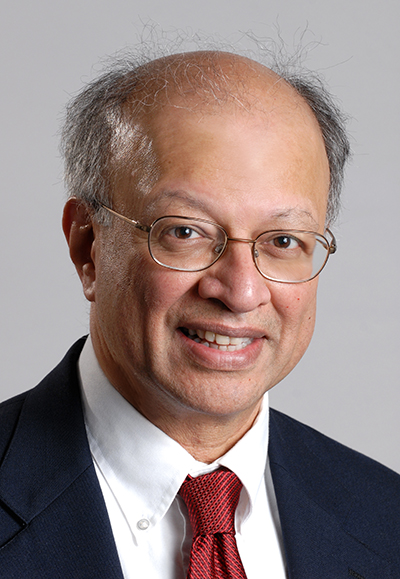 Distinguished Professor Ashok Gadgil
Distinguished Professor Ashok Gadgil
Lawrence Berkeley National Laboratory
Professor Ashok Gadgil is an exceptional R&D leader who has devoted 30+ years to creating technological innovations for safe drinking water, clean air, sustainable energy, and reduced infant mortality, profoundly benefiting the health and dignity of low-resource communities. He has mentored numerous researchers pursuing impactful R&D careers, directed a national laboratory research division, directed a binational clean water-energy technologies research organization, directed a university development impact lab addressing global poverty, and developed and taught courses in development engineering at UC Berkeley. Fueled by a deeply rooted passion to uplift hundreds of millions of people suffering from environmental, economic, and sociopolitical hardships, Gadgil tirelessly works beyond expectations to ensure his innovations reach target communities quickly. He has gained international recognition as a champion of R&D innovation for those most in need. Gadgil’s numerous achievements include:
- In the 1980s, Gadgil was the first advocate of large utility-sponsored projects in developing countries promoting energy-efficient electric lighting to millions of low-income households. He collaborated with others to design and demonstrate the efficacy of such projects, now commonplace in dozens of developing countries, saving their economies billions of dollars annually.
- In 1993, an outbreak of Bengal cholera killed 10,000 people in Bihar, India, in one month alone, and soon spread to Bangladesh and Thailand. In response, Gadgil designed a low-cost, scalable water disinfection system known as UVWaterworks, which kills waterborne pathogens with ultraviolet light. The robust life-saving technology was licensed in 1997 by WaterHealth International. Gadgil served as the company’s technical advisor until 2010. Today, WHI serves millions of low-income, rural customers in five countries.
- In 2004, Gadgil focused on reducing the risk of violence against Darfur women refugees gathering fuel away from camp. He designed an inexpensive natural-convection stove for rapid local production. He helped establish the assembly shop in Darfur. The stove worked with their fuelwood and cooking culture and doubled the efficiency of their cooking. 66,000+ Berkeley-Darfur Stoves have been distributed to refugee camps in Africa by Potential Energy, the non-profit Gadgil co-founded.
- 200 million rural people worldwide use arsenic-contaminated groundwater for drinking. Starting in 2005, Gadgil led the invention of a robust, affordable electrochemical method to remove the carcinogen from groundwater used by rural communities in India and elsewhere. He and his team published several papers on the technology’s efficacy, raised funds to scale-up, and built a pilot plant serving 5,000 people daily in India. They have further advanced this technology making it more efficient and compact for use in rural California.
- Annually, about a million newborn babies worldwide die from hypothermia-related causes. Incubators, common in industrial countries, are out of economic reach for rural populations of developing nations. Gadgil and his team invented a plant-wax-based non-electric infant warmer costing USD $100 and keeping an infant warm for 6 hours. Harvard researchers tested this infant warmer in a large randomized clinical trial in Rwanda finding a stunning drop in infant mortality from 2.8% to 0.9%.
For developing numerous technological solutions and blueprints for action to ensure those solutions reach people in need, Gadgil has been recognized with many awards, including the Pew Fellowship in the Environment (1991), Discover Award (1996), European Inventor Award (2011), Zayed Sustainability Prize (2012), and Zuckerberg International Prize for Water (2022). Gadgil was fittingly inducted into the National Inventors Hall of Fame (2014).
Professional Awards: R&D Researcher of the Year
Dr. Chaudhary started his professional career with Dow R&D in Germany in 1990, after working at Smith and Nephew Research in the U.K. from 1989 to 1990. At the outset, he played a leading role in developing and implementing a proprietary global process technology for ETHAFOAM Extruded Polyethylene Foam made with highly flammable blowing agent of zero ozone depletion potential (through modification of the polymer foam structure to eliminate flammability hazards). This successful initiative resulted in ETHAFOAM having significant economic impact for many years as a global business of Dow (until it was sold to Sealed Air) and set the theme of sustainability that has continued to run through several of Chaudhary’s important contributions over the years.
In 1994, Chaudhary transferred to the United States, where he has worked in the R&D departments of different Dow business units on various approaches for modification of olefinic, vinyl chloride and styrenic polymers. In his present role in Dow Wire & Cable, Chaudhary continues to develop novel polymers and polymer compositions to create differentiated and advantaged products that are of value to both Dow customers and end-users. Several of the products and technologies that Chaudhary has been involved in developing over his career have been commercialized (some within the past 3 to 5 years) or are in the process of being commercialized.
Chaudhary’s research and development activities have revolved around creating value for Dow through his own work, by coaching individuals and teams based on his in-depth technical expertise, by partnering with others within various Dow functions (Marketing, Manufacturing, R&D, Technical Service and Development, etc), and collaborating closely with leading universities and institutes around the world. His interactions with academia over the year are particularly noteworthy. The results from these collaborations were used in support of process/product development, 12 patent applications, 19 journal papers and 5 conference presentations. Furthermore, talented students and post-doctoral fellows were hired by Dow from some of these universities.
An illustration of his recent accomplishments is the design of the SI-LINKTM DFDF-5451 NT Faster Moisture Curing Ethylene-Silane Copolymer that is a novel silane functionalized ethylenic polymer having enhanced architecture which enables game-changing improvements in performance. Ambient crosslinking of the resulting compositions (with a given silanol condensation catalyst) is accelerated by 3 to 40 times over the use of incumbent products, and the copolymer itself desirably exhibits excellent shelf-stability.
Professional Awards: R&D Sustainability Innovator of the Year
Dr. Bob Robinson Maughon is the Executive Vice President, and Chief Sustainability and Technology Officer at SABIC. He oversees a global organization with 19 research centers around the world and a talented team focused on driving process, product and application innovation to bring sustainable material solutions and products to the marketplace. Prior to joining SABIC in 2019, he served as the R&D vice president for Packaging & Specialty Plastics and Hydrocarbons at Dow.
He is also actively engaged in developing bold sustainability initiatives through the World Economic Forum and the Alliance to End Plastic waste with focus areas on decarbonization, circularity, and enabling the energy transition to a sustainable future.
In the four years Maughon has been at SABIC, this transformational leader has had great impact on sustainability on various fronts:
- Under his leadership, SABIC kicked off the BLUEHEROTM electrification efforts that include creating a cross-functional 25- person team in 2019 (for the first time in SABIC’s history) to provide materials, solutions, and expertise to enable transition to a low carbon future for transportation and other sectors such as grid storage.
- Maughon was instrumental in kick-starting the Low Carbon Emitting Technologies initiative within the World Economic Forum. This is a unique platform where global competitors in the petrochemical space have come together to accelerate solutions for a low carbon petrochemical industry. SABIC has taken the lead on waste processing to reduce cradle to grave CO2 emissions and also electrification of energy intensive operations.
- Maughon initiated a collaboration with BASF and Linde to build and demonstrate a one-of-its-kind electric-cracking furnace.
- Under Maughon’s leadership, SABIC announced bold goals of reaching carbon neutrality by 2050 and 1 million metric tons of recycled plastic per year by 2030
- Maughon made the bold announcement at the SABIC investors day in 2022 that SABIC will build 3 parallel First Adopter furnaces for cracking hydrocarbons via 3 different routes: (i) Cracker electrification, (ii) clean H2 combustion, and (iii) CO2 sequestration
- Even with the tremendous growth that SABIC is having under Maughon’s leadership, the company’s total carbon emissions are projected to be 20% lower than the 2018 benchmark by 2030
- Maughon led a reorganization of the technology and innovation centers across the globe to ensure SABIC can deliver on the aggressive sustainability goals
- Maughon made 6 venture capital investments related to low carbon solutions, sustainable agriculture, circularity, and materials for energy transition.
Maughon is a visionary and thought leader in sustainability, and a highly sought out speaker to drive the change and transformation needed to deliver solutions in the chemical industry. He serves as a member for the University of Michigan Engineering Leadership Advisory Board, the AspenTech Executive Advisory Board, and the American Chemical Society Sustainable Development Advisory Council.
Professional Awards: R&D Team of the Year
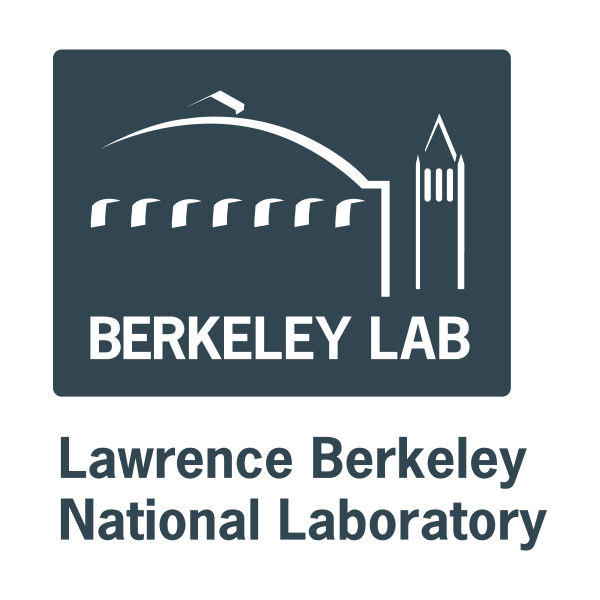 Energy Management System (EnMS)
Energy Management System (EnMS)
Lawrence Berkeley National Laboratory
Ana Comesana, Scientific Engineering Ass.
Arian Aghajanzadeh, Founder
Amy Pevzner, Program Manager
Bunmi Adesola, Program Manager
Christopher Payne, Group Leader, Sustainable Operations
Graziella Siciliano, Technical Affiliate
Heidi Fuchs, Energy/Environmental Policy Researcher
Natalie Sherman, Program Operations Analyst
Prakash Rao, Head of Building and Applications Department
Paul Sheaffer, Program Manager
Peter Therkelsen, Research Scientist
Rory Schmick, Sr. Advisor, Building and Applications Department
Sergio Dias, President and Founder
Nick Karki, Sr. Research Associate
Vi Rapp, Deputy Dept. Head, Building and Applications Department
Vestal Tutterow, Energy/Environmental Researcher
William Miller, Sr. Advisor and Project Manager
The EnMS team’s groundbreaking work has had a profound impact on global efforts to promote energy management business practices in the commercial, manufacturing, and institutional sectors. The team has collectively contributed to their fields and consistently demonstrated the ability to leverage members’ different strengths. It is composed of individuals from diverse academic and personal backgrounds who bring a wealth of experience and expertise to their work. By leveraging their different strengths, they have been able to create a technical program that engages people working in all economic sectors.
They have developed measurement and verification protocols and international standards, delivered technical assistance to organizations globally, developed professional workforce certification programs, and partnered with private and public sector organizations to accelerate the deployment of energy management business practices. The EnMS team has provided technical leadership to the International Standards Organization Technical Committee responsible for ISO 50001, created the US Department of Energy’s 50001 Ready Program, cultivated a network of 26 utility energy efficiency programs, and partnered with Northern Illinois University and Wichita State University to develop curriculum teaching engineering students the fundamentals of 50001 Ready energy management.
The EnMS team seeks diversity of thought inside and out to ensure it effectively creates the resources that meaningfully connect people with the energy using system in order to benefit the people and organizations they work for. They have developed measurement and verification protocols and international standards, and delivered technical assistance to organizations around the world. They have also developed professional workforce certification programs and partnered with private and public sector organizations to accelerate the deployment of energy management business practices globally.
The EnMS Team provides technical leadership to the International Standards Organization Technical Committee responsible for ISO 50001. It engages with representatives from more than 60 countries to advance energy management system standards through the consensus process, working so that all stakeholders are heard and represented. By focusing on bringing the collective strength of the team and international delegates together, the EnMS Team ensures that ISO 50001 remains relevant, robust and up-to-date, and helps organizations of all types in all countries improve their energy performance, reduce greenhouse gas emissions, and achieve their sustainability goals.
Professional Awards: R&D Technician of the Year
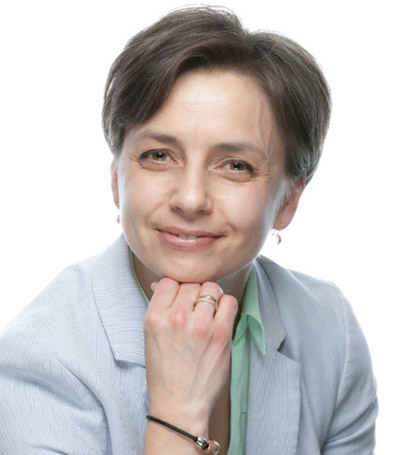 Olena Palasyuk
Olena Palasyuk
Ames National Laboratory
Olena Palasyuk has been a key team member for a number of the research groups at Ames National Laboratory as well as to contributing institutions who are members of its Critical Materials Institute (CMI). Her expertise in materials synthesis, magnetic measurements, scanning electron microscopy, thermal analysis and x-ray diffraction have been crucial enabling techniques in understanding and controlling materials processing in a wide range of materials ranging from critical materials to high temperature metallic alloys.
Ames National Laboratory is the only Department of Energy national laboratory that sits within the campus of a major research university, Iowa State University. This research environment brings together several opportunities and challenges in undertaking cutting edge research. Its proximity on the university campus provides a unique teaching and workforce development where undergraduates and graduate students can engage in multi-disciplinary research while still taking classes. This is also a challenge since it means overseeing and training many users.
The bulk of this oversight and training falls on Research Technologists like Palasyuk. More users also means more frequent training and tends to result in more potential failures or the need to recalibrate research equipment more often. So, in addition to doing many research tasks, Olena oversees the X-ray diffraction equipment and training new users in safe operations and how best to collect data for a wide range of sample chemistries and morphologies (from bulk samples to fine air-sensitive powders). She is also helping not only to train the users in the routine operation of the equipment, but to instruct them on how to analyze their data.
As team member on numerous CMI projects, she is engaged in multi-pronged science- based approach of looking for new, undiscovered, rare-earth lean, transition metal rich complex compounds with enhanced magnetic properties or looking for new ferromagnets containing abundant and relatively inexpensive elements. The goal is discovery cost-effective and environmentally sound materials for energy, electronic, and transportation applications. This would contribute to the deployment of materials that can substitute for today’s rare-earth based magnets. This work has resulted in more than seven publications in research journals and two patents over the last four years. She has also been active in Ames’ alloy design efforts.
In addition, Palasyuk has been the Safety Coordinator for the CMI, this position liaisons between the research group and the laboratory Environmental, Health and Safety division. These duties include organizing and participating in safety walkthroughs, helping research groups prepare for periodic reviews of their research activities and performing emergency awareness training. Recently she has participated in Safety Culture Investment Program Pilot (SCIPP) – 2022. This is a Department of Energy’s (DOE) Safety Culture Improvement Panel (SCIP) Monitoring, Means, and Methods Working Group (MMM WG) to pilot invest in metric development and data collection for aspects of safety culture to identify and measure behaviors and attributes which may contribute to the development and maintenance of a robust and effective safety culture.

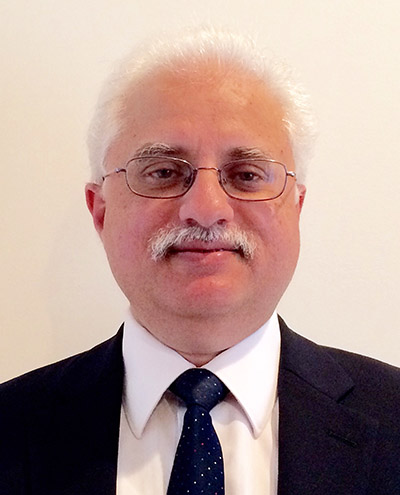
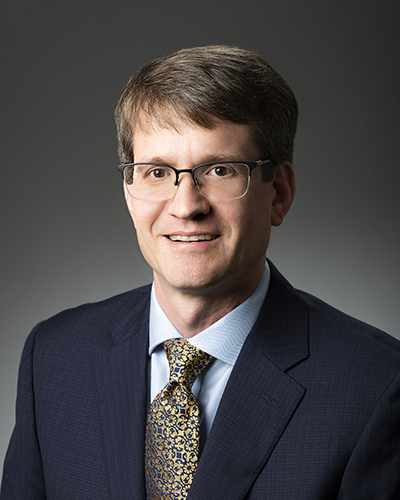



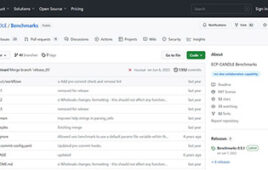
OFICIAL CONGRATULATIONS!
THE R&D AWARDS HONOR BERKELEY are the most relevant researchers and developers in all areas of knowledge.
With honorable best regards
AMBASSADOR @Alcir Vogel